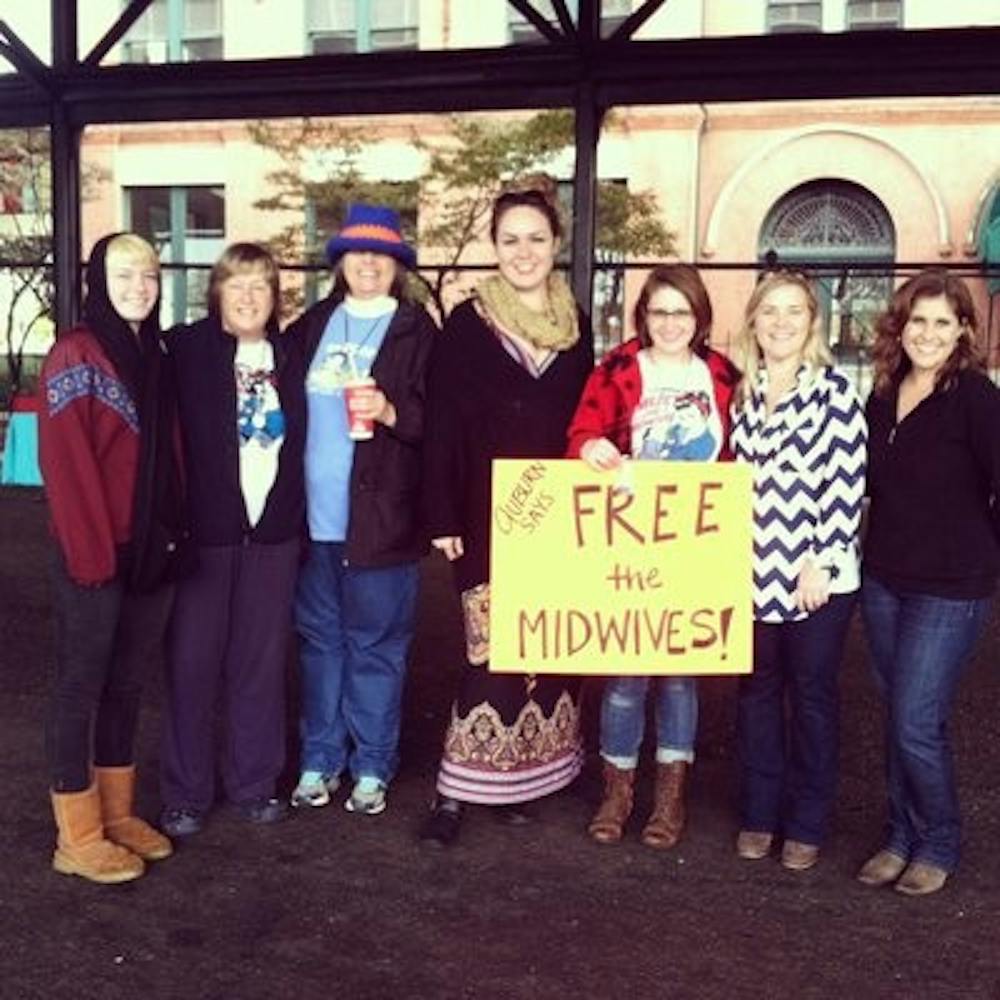Having a home birth is an option many Alabama women don't have and an option that can send midwives behind bars. The Alabama community is fighting for midwives, and some of them are here in Auburn.
Lisa Clark, vice president of the Alabama Birth Coalition, is the liaison between the ABC and the Alabama Midwives Alliance.
"We advocate for all midwives," Clark said. "[Both] Certified Professional Midwives, who are specialist in out-of-hospital births, but we also advocate for Certified Nurse Midwives who, in Alabama, are limited to attending only hospital births."
Certified Nurse Midwives are licensed in Alabama, according to the ABC's website, but the state has not authorized Certified Professional Midwives to practice legally.
"The Alabama Birth Coalition is a volunteer [. . .] grassroots organization just by moms who have had to go and give birth in Mississippi or other states, or who are passionate about changing the laws that criminalize [Certified Professional Midwives] from practicing within their scope of training," said Katie Hanna, regional board member. "The midwives have to be able to work under the doctor, and so the doctor has to sign off [. . .] so the midwives don't have any autonomy."
When Hanna first came to Alabama, she said she initially wanted to have a home birth for her son here, but couldn't find any midwives. Hanna had to go back to Brooklyn, N.Y., to have the home birth she wanted.
Jennifer Crook, lobbyist and Certified Professional Midwife, decided to become a midwife after witnessing a hospital birth of a family member.
"I had all these ideas in my head about what it would be like, and I walked into the room and it was not as I had imagined," Crook said. "There was a nurse in the corner monitoring a computer and not the mom. It was a perfectly normal low-risk pregnancy and birth, but the baby was born with abrasions on his face."
Crook said she walked away from that experience certain she didn't want birth to be that way for her, and so she began to look into midwifery.
Crook said she practiced legally in Tennessee.
"In Tennessee, I can be above board and I can make a transfer of care and carry charts and lab results and call a doctor on the phone and walk into the hospital and know that I'm protected by law," Crook said. "It's never a way to give the mom the best care, going into a pregnancy and birth, you know, wondering 'what if something happens where I need to transport . . . am I going to end up in jail?'"
Hanna said she doesn't think there is anything wrong with obstetricians, but she thinks the midwife model of care is much more personable. Hanna's midwife would spend an hour or more with her each visit, and came to her house for appointments at the end of her pregnancy.
"The midwife model of care is much more personable, much more in depth, and it just creates a very deep bond," Hanna said. "You can see your doctor the whole time in the hospital, but if they're not on call you get Joe-Shmo."
Hanna is a part of the Lee County Supporters of Alabama Birth Coalition, which is a group of moms and students who can come learn more about midwives and homebirths before making a decision.
"Women in Alabama really just deserve the choice to be able to have options in childbirth and not just be stuck with one model of care," Hanna said. "And they deserve that choice to be safe and comprehensive."
Hanna said she believes everyone knows what works best for them, and not everyone should have a homebirth, and not everyone should have a hospital birth. For more information about the Alabama Birth Coalition or local meetings with the group, call Katie Hanna at (818) 644-3111.
Do you like this story? The Plainsman doesn't accept money from tuition or student fees, and we don't charge a subscription fee. But you can donate to support The Plainsman.




